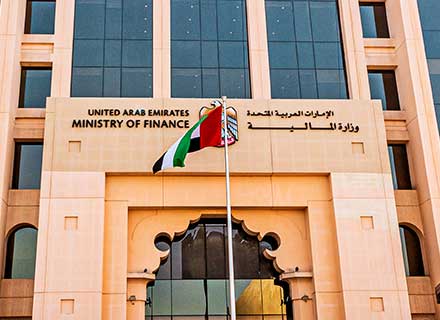The UAE Ministry of Finance made fresh adjustments to its business tax system and repealed and replaced the preexisting executive order in an effort to increase compliance and provide clear guidance.
According to Emirates News Agency, or WAM, the action was taken to ensure compliance with the New Tax Procedures Law, which went into effect on March 1, 2023.
With the Corporate Tax Law, which took effect on June 1, the ministry made the modifications to bring pertinent legislation up to date and give the taxable population the essential direction of the UAE tax system.
The cabinet resolution specified the time period and method of record-keeping, among other standards for maintaining accounting records and business books, according to the article.
It also emphasized the requirement for communication in either Arabic or English and offered improvements to the tax agent registration and de-listing procedures.
Younis Al-Khoori, undersecretary of the Ministry of Finance, asserts that the new Cabinet decision’s extra conditions are unambiguous and easy to implement. He continued by saying that these circumstances help the UAE keep its status as a top investment hub.
Al-Khoori was described by WAM as saying, “This judgment strikes a compromise between the UAE’s continued competitiveness as an investment destination and protecting the integrity of the Corporate Tax system.”
The ministry also made public a cabinet resolution that outlines additional requirements for investment funds to qualify for the tax treatment of firms and businesses.
The ruling also set forth additional requirements for investment funds to be free from corporate tax, including having their primary business activity be investments and their auxiliary or incidental activities not exceed 5% of their total annual revenue.
Another requirement was that no single investor or its associated parties could hold more than 30% or 50% of the ownership interests in the investment fund, depending on how many investors there were.
It also stipulated that an investment manager who employs at least three investment specialists must oversee the fund. Additionally, investors cannot have any influence over the daily management of the fund.
The government announced that the diversity of ownership criterion for investment funds other than REITs will be non-binding for the first two financial years of the fund’s inception in order to maintain the flexibility of the corporate tax system.
It did, however, add that proof of the intention to diversify ownership beyond the first two financial years is required.
According to the government directive, one of the requirements for REIT exemptions is that the value of real estate assets held by the REIT, excluding any land it owns, must exceed 100 million dirhams.
It further said that at least two or more institutional investors must jointly own at least 20% of the REIT’s share capital to qualify as completely owned. Although it’s ideal to maintain an annual average real estate asset percentage of at least 70%.

